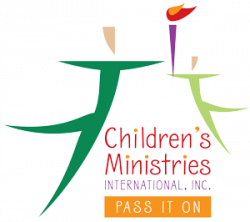In 1 Thessalonians 5:21-22 (NASB), we read, … “but examine everything; hold firmly to that which is good, abstain from every form of evil.”
As children’s ministry leaders, it is our job to teach boys and girls how to be discerning.
Discernment is simply the ability to determine truth from error and holy behavior from unholy (Hebrews 5:14; Ephesians 5:8-17; 1 John 4:1-6; 1 Thessalonians 5:21-22).
Truth is important for kids to know because:
- Truth allows them to be wise, knowing good from evil and right from wrong (Romans 16:19).
- Truth helps them understand reality and what really matters in life (2 Peter 1:3-8; Ephesians 5:15-17).
- Truth is the only thing that can liberate them from sin. (John 8:32)
- Truth keeps them from being deceived. (2 Corinthians 11:13-15; 2 Timothy 4:3-4)
- Truth shows them the way to a life of meaning and purpose (Jeremiah 9:23-24; Romans 8:28; 2 Timothy 3:15).
- They please God when they walk in the truth (Ephesians 5:8-11).
As we teach children from the Bible at church, they learn the truth and embrace it. Here are three essential things you must teach to the kids in your children’s ministry.
First, children need to know that the Triune God, God the Father (Deuteronomy 32:4; Jeremiah 10:10; John 17:3), God the Son (John 1:14, 14:6; 1 John 5:20), and God the Holy Spirit (John 14;17, 15:26, 16:13; 1 John 2:27, 4:6) is the Source of truth. In other words. all truth is God’s truth (Isaiah 65:16).
Truth does not come from within us, as some believe. Truth comes from God alone, who never changes. And because of that, the truth never changes (Isaiah 40:8; Number 23:19; Malachi 3:6; Hebrews 13:8; James 1:17; 1 Peter 1:25; Psalm 117:2). Therefore, what was true when God created the world is still true today.
Second, children need to know that God’s Word is what determines truth. (John 8:31-32; Ephesians 1:13; Psalm 18:30, 19:7-9, 119:142, 151, 160. Remember, the Bible is known as the “Word of Truth” (John 17:17). When children question whether something is right or wrong, they need to go to the Scripture for answers.
Third, children need to know that they should always be discerning by examining everything in the light of Scripture. Once they learn the truth from God’s Word, they can hold on firmly to what is good and separate themselves from what is evil (1 Thessalonians 5:21-22). If we fail to teach children to discern truth from error and holy behavior from unholy, they will fall for anything, including…
- False gospels. (Galatians 1:6-7; 2 Corinthians 11:4)
- False doctrines. (Romans 16:17; Deuteronomy 4:2; Proverbs 3:5-6; 2 Peter 3:16; Revelation 22:18-19)
- False gods. (1 Corinthians 10:18-21; Deuteronomy 32:17; Psalm 106:37; Acts 15:29)
- False christs. (Matthew 24:4-5, 24; Mark 13:6, 21-22; Luke 21:8)
- False spirits.(1 John 4:1-6; Ephesians 6:12)
- False prophets. (Matthew 7:15, 24:11, 24; Mark 13:22; Luke 6:26; Acts 13:6; 2 Peter 2:1; 1 John 4:1; Revelation 16:13, 19:20, 20:10)
- False apostles. (2 Corinthians 11:13; 2 Peter 2:1-3; Revelation 2:2)
- False teachers. (1 Timothy 1:3-7; Acts 20:30; Colossians 2:18; 2 Peter 2:1-3)
- False visions. (Ezekiel 22:28, 12:24, 13:9,16, 21:29; Lamentations 2:14)
- False miracles. (Matthew 7:22-23, 24:24; Revelation 13:13-14; Exodus 7:11,22, 8:7; Acts 8:9-11)
- False worship. (Isaiah 29:13; Leviticus 10:1-2; Matthew 15:7-9; Mark 7:6-8)
- False christians. (Titus 1:16; Matthew 7:21-23; 2 Timothy 3:5)
As children’s ministry leaders, we have to set an example to the boys and girls we minister to by demonstrating our ability to discern.
Are you a discerning children’s ministry leader? It is vital that you are.
FOR YOUR MINISTRY TOOLBOX
1) Check out all the Bible verses in the Show Notes, as only a few were mentioned. If your podcast provider does not publish the Show Notes, visit our website at cmikids.com, and you will find them there under the title of this episode.
2) Before you teach children about discernment, examine yourself by answering the following questions from this checklist.
- Do I make decisions based on God’s Word or on my desires and emotions?
- Do I reason from a cultural point of view or from a Biblical perspective?
- Do I live based on “my truth” or Biblical truth?
- Do I study and understand Christian Doctrine or ignore it?
- Is my Biblical knowledge shallow, or do I know what I believe and why?
- Do I know God’s plan and purpose for my life and ministry, or am I ignorant of His plan and purpose?
Hold your answers up to the light of Scripture and ask the Holy Spirit to be your teacher. Study the Bible verses in the Show Notes to evaluate your discernment and what you may need to work on.
TAGS: Exodus 7:11,22; 8:7; Leviticus 10:1-2; Numbers 23:19; Deuteronomy 4:2; 32:4,17; Psalm 18:3; 19:7-9; 106:37; 117:2; 119: 142, 151, 160; Proverbs 3:5-6; Isaiah 29:13; 40:8; 65:16; Jeremiah 9:23-24; 10:10; Lamentations 2:14; Ezekiel 12:22-24; 13:9,16; 21:29; 22:28; Malachi 3:6; Matthew 7:15, 22-23; 15:7-9; 24:5, 11, 24; Mark 7:6-8; 13: 6, 21-22; Luke 6:26; 21:8; John 1:14; 8:32; 14:6-17; 15:26; 16:3; 17:3, 17; Acts 8:9-11; 13:6; 15:29; 17:11; 20:30; Romans 8:28; 16:17, 19; 1 Corinthians 10:18-21; 2 Corinthians 11:4, 13; Galatians 1:6-7; Ephesians 1:13; 5:8-11; 6:12; Colossians 2:18; 1 Thessalonians 5:21-22; 1 Timothy 1:3-7; 2 Timothy 3:5, 15; 4:3-4; Titus 1:6; Hebrews 5:14; 13:8; James 1:17; 1 Peter 1:25; 2 Peter 1:3-8; 2:1-3; 3:16; 1 John 2:27; 4:1-6; 5:20; Revelation 2:2; 13:13-14; 16: 13, 19, 20; 20:10; 22:18-19. Discernment; Truth; Error; Holy Behavior; Unholy Behavior; Triune God; Bible; Teaching Children.
Visit www.cmikids.com
© 2022 Children’s Ministries International, Inc.

